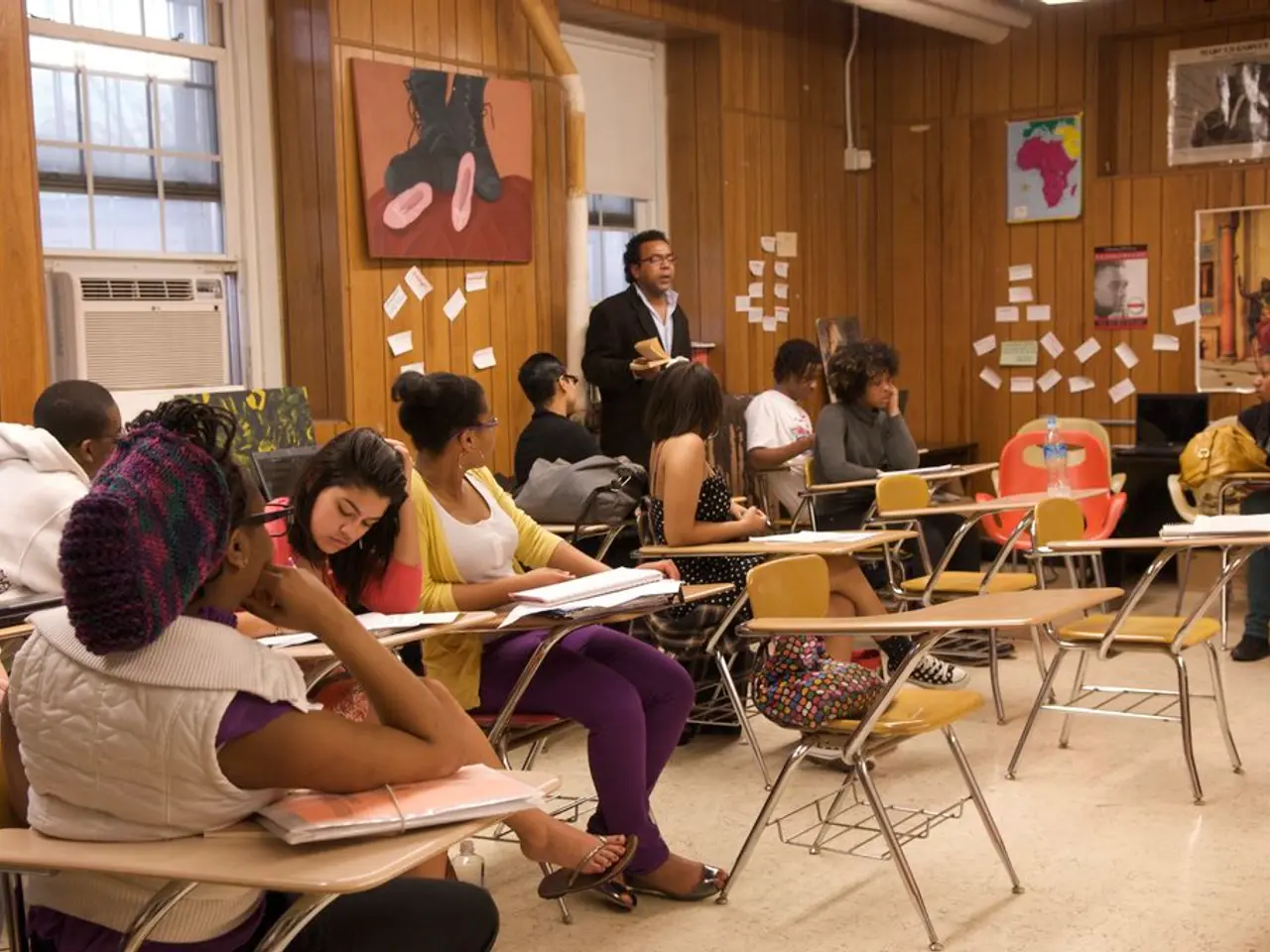Transformed World Stays Constant in Some Aspects: A Source of Comfort According to Devi Kar
In the midst of rapid technological advancements, from computers and mobile phones to Artificial Intelligence, one might wonder if the fundamental principles of education have been left behind. However, as veteran school educator Sunanda K. Datta-Ray points out, certain core values and methods remain unchanged, forming the timeless core of education.
Despite the advent of AI, human teachers have remained an integral part of schools, and traditional tools like practice, drill, chalk, and talk are still used. Schools continue to house physical libraries, printed books, and manuscripts, as well as virtual resources. This blend of traditional and modern learning resources underscores the adaptability of education in the face of technological change.
One of the enduring principles of education is the emphasis on critical thinking and reasoning. The classical Trivium (grammar, logic, rhetoric) serves as a framework for teaching students how to think clearly, evaluate information, and communicate persuasively. These skills are foundational, regardless of the technological tools used.
Another crucial aspect is character development and ethical integrity. Education traditionally aims to form a student's character, promoting values like honesty, empathy, and responsibility. Institutions continue to emphasize these values, as they address human development beyond simple information acquisition.
Discipline and practice also remain central to the learning process. Reinforcement through repetition, discipline, and structured learning sustains learning habits, even in hi-tech classrooms. The "carrot and stick" approach or positive and negative reinforcement continues to play a significant role in maintaining learning habits.
Lifelong learning and curiosity are also stable principles in education. Teaching that learning is continuous and self-directed rather than confined to formal schooling is a timeless principle.
The importance of knowledge cannot be overstated. Facts and content remain necessary prerequisites for critical thought. Educators stress mastery of core knowledge before skills like analysis and creativity can be effectively applied.
The role of teachers and families also remains unchanged. Though technology enables new learning modes, the authority of expert teachers and partnerships with parents as educational allies are enduring principles.
Inclusivity and equity are fundamental goals, independent of evolving tools or content delivery. High standards and equal respect for all students’ potential remain fundamental, ensuring that all students have an equal opportunity to learn and grow.
In essence, education's timeless core is about forming wise, articulate, and ethical individuals equipped to engage meaningfully with the world and seek truth, goodness, and beauty. Technology changes how we access information and communicate, but it does not alter these enduring purposes and methods.
Memorization, often seen as a tedious task, can be beneficial, especially for subjects like chemistry and mathematics, and for quoting. The writer finds comfort in the fact that some things, like the importance of values, do not change.
[1] Classical education and its relevance in modern times [2] The role of character development in education [3] The enduring principles of education in the digital age [4] The importance of memorization in education [5] The role of teachers and families in education in the 21st century
- While technology has revolutionized the ways we access and communicate information, the principles of classical education remain relevant in shaping students to navigate the modern world wisely, articulately, and ethically.
- Despite the ubiquitous presence of technology in education, character development and ethical integrity still form a fundamental part of the educational process, aiming to cultivate values like honesty, empathy, and responsibility in students.




